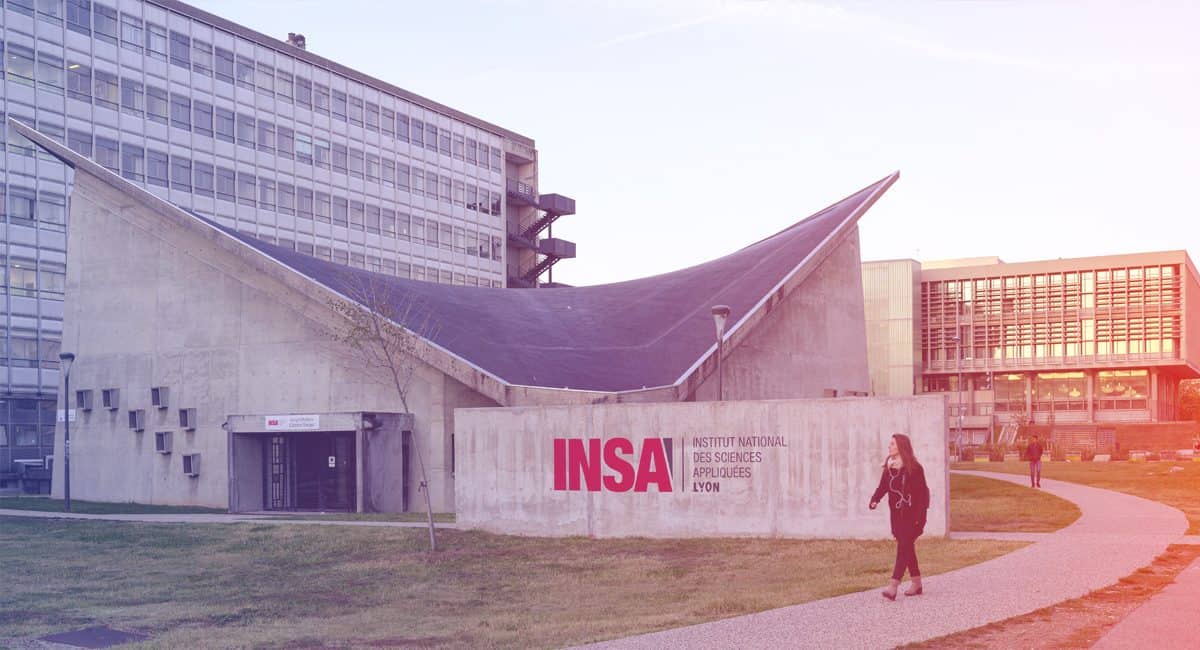INSA Lyon is France’s leading post-baccalaureate engineering school. Each year, it attracts a diverse range of top-performing high school graduates (A-level equivalent), with over 14,000 applicants vying for admission. Around 1,000 students are admitted annually, among whom 37% are female, 33% are scholarship recipients, and 35% are international students. Nearly 100 nationalities are represented on campus, all pursuing a comprehensive five-year engineering program. This diversity and excellence make INSA Lyon highly attractive to recruiters. Our graduates are quick to find their place in the job market, demonstrating how closely our training aligns with industry needs—needs we understand through strong partnerships with companies.
Building connections is one of the school’s greatest strengths. It starts with an active student life, with more than 130 student associations operating on both our LyonTech-La Doua and Oyonnax campuses. Diversity, excellence, open-mindedness, and innovation are the driving forces of the INSA Lyon model. Since 1957, we have championed the vision of a forward-thinking engineer—more relevant than ever in today’s world.
INSA Lyon is also a dynamic and inclusive research institution, committed to addressing five key societal challenges:
- Energy for sustainable development
- Environment: natural, industrial, and urban ecosystems
- Digital society and information technologies
- Global health and bioengineering
- Transportation: structures, infrastructure, and mobility
With 22 research laboratories, INSA Lyon fosters a multidisciplinary research approach in close collaboration with regional academic partners such as École Centrale de Lyon, École Normale Supérieure–Sciences, Université Claude Bernard Lyon 1, Université Lumière Lyon 2, Université Jean Moulin Lyon 3, and Université Jean Monnet Saint-Étienne.
As part of this commitment, the Centre for Energy and Thermal Sciences of Lyon, one of INSA Lyon’s 22 laboratories, leads ALPHA’s Work Package 2.3 (WP2.3) and will organize and host a joint workshop. This event will bring together partners, observers, and other stakeholders with the aim of clustering improvement plans from WP2.2. Drawing on its expertise in heat transfer and energy management in buildings, the centre will analyze prioritized heating and cooling (H&C) applications, such as heat pumps, as part of the workshop’s preparation. It will also produce a “lessons learned” report after the workshops conclude, supporting the development of effective decarbonization pathways.



